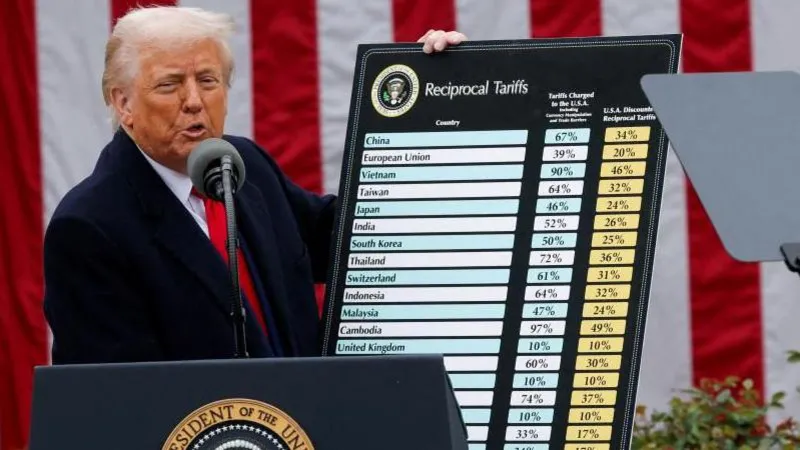The Trump administration’s imposition of sweeping tariffs on imports marked a significant shift in US trade policy, particularly impacting its relationship with African nations. The tariffs, justified by President Trump as reciprocal measures against countries deemed to be engaging in unfair trade practices, ranged from a baseline of 10% to as high as 50% for Lesotho, the second highest rate globally after China. This move represented a departure from decades of established trade norms and sparked concerns about potential negative consequences for both the US and its trading partners.
Lesotho, a small southern African nation heavily reliant on textile and diamond exports to the US, faced a 50% tariff – a figure calculated based on the US trade deficit with the country. This substantial levy threatened to severely impact Lesotho’s economy, given that trade with the US constitutes a significant portion of its GDP. Lesotho’s garment industry, which produces jeans for prominent American brands like Levi’s and Wrangler under the African Growth and Opportunity Act (AGOA), faced significant disruption. AGOA, designed to stimulate economic growth and job creation in eligible African countries by providing duty-free access to the US market, seemed undermined by these new tariffs.
South Africa, a major African economy and the US’s largest trading partner on the continent, was also targeted with a 30% tariff. This decision, justified by allegations of unfair trade practices, including high tariffs on US imports, drew condemnation from the South African government, which described the tariffs as “punitive” and detrimental to shared prosperity. Furthermore, Trump’s criticisms of South Africa’s land reform policies, echoing sentiments expressed by Elon Musk, added a layer of political tension to the trade dispute.
The broader implications of these tariffs extended beyond Lesotho and South Africa. Numerous other African countries faced varying tariff rates, including 47% for Madagascar, 40% for Mauritius, and 37% for Botswana. Even countries subject to the baseline 10% tariff, such as Kenya, Ghana, and Nigeria, expressed concerns about potential negative impacts on their economies. The tariffs threatened to disrupt existing trade relationships, hinder economic growth, and potentially exacerbate existing vulnerabilities in some African nations already facing challenges due to cuts in US foreign aid.
The imposition of these tariffs represented a significant departure from previous US trade policy towards Africa, which had generally promoted open trade and economic cooperation. The new approach, characterized by a focus on reciprocity and accusations of unfair trade practices, risked undermining established partnerships and creating economic uncertainty. The timing of the tariffs, coming amidst cuts to US foreign aid and increasing political tensions with some African countries, further complicated the situation.
The Trump administration’s trade policy shift, marked by the imposition of these tariffs, reflected a broader trend towards protectionism and a re-evaluation of global trade agreements. While the stated goal was to protect American industries and workers from unfair competition, the potential for negative economic consequences for both the US and its trading partners, especially developing economies in Africa, was a significant concern. The long-term impact of these policies on global trade relations and the future of US-Africa economic partnerships remained to be seen.


